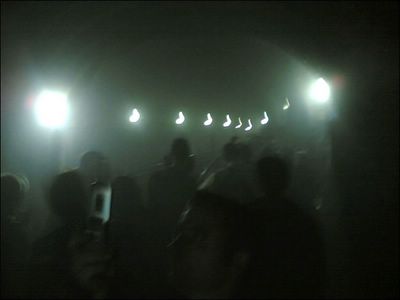Monday, July 18, 2005

Alexander Chadwick/Associated Press
July 17, 2005
Battlefields
By RICHARD A. CLARKE
The carnage in the London Underground follows an even more horrendous attack on Madrid commuters 16 months ago. When President Bush sought recently to reassure Americans about his Iraq policy, he emphasized that we are fighting terrorists in Iraq so that we do not have to fight them here at home. Unfortunately for Britain and Spain, fighting terrorists in Iraq did not immunize them from attacks at home.
Earlier this year the administration revealed that Osama bin Laden had communicated with Abu Musab al-Zarqawi, the head of ''Al Qaeda in Mesopotamia,'' urging him to send some of his many fighters to the homelands of the United States and its coalition allies. Zarqawi's network has apparently been quite successful in recruiting new terrorists in Arab nations and in Islamic communities in Europe. Before the London attacks, the police arrested Zarqawi recruiters in Britain, Germany, Spain and elsewhere. (Among those arrested in Spain was a terrorist thought to be connected to the Madrid attacks.) Iraq acts both as a motivator for the new jihadis and as a training ground. It has replaced Afghanistan, Chechnya and Bosnia. Now, Muslim radical youth go to Iraq to prove themselves and learn the trade of terror.
A recent C.I.A. analysis reportedly concluded that those being recruited by Zarqawi are receiving better training and preparation by fighting in Iraq than previous terrorists received from bin Laden in Afghanistan. The report went on to say that these new terrorists will probably leave Iraq and practice their skills elsewhere. A Canadian Intelligence Security Service analysis reportedly says that terrorists trained in Iraq are likely to be involved in attacks in other countries. Commenting on the report, a former Canadian security officer said that terrorists are ''still planning very imaginative actions like we saw on 9/11.''
Although the United States made legal entry into the country more difficult after 9/11, it is still possible for potential terrorists to come here. Many of the new jihadis are citizens of European nations to which we grant visa-free entry. A jihadi might also come illegally, as millions of people do each year. Thus many security experts believe that it is only a matter of time until another attack occurs in the United States.
Members of the 9/11 Commission recently warned that the absence of an attack here in the last four years has created an atmosphere of complacency in which needed security improvements are given inadequate attention. Their warning should be heeded. The London Underground bombings highlighted, for example, one of the many areas where we remain vulnerable. Although the federal government has spent approximately $18 billion since 9/11 upgrading airline security, it has spent only $250 million on passenger-rail security. Any regular traveler can see the results. While I have been unable to carry a small scissors onto an aircraft, I have successfully carried a gun onto a passenger train.
In the hours after the London attacks, police officers flooded subway systems in the United States to beef up security. The fact that they had to do so is further evidence that these systems lack adequate protection. Increased use of closed-circuit cameras, uniformed guards and undercover officers in stations and on trains would reduce the likelihood of a successful attack on commuter rail lines.
The best way, however, to stop such attacks is through intelligence penetrations of terrorist circles. Only last month, almost four years after 9/11, did the administration agree to create a National Security Service within the F.B.I. to enhance our ability to perform such penetrations. It will be more years before this service is fully operational.
Why do we still find ourselves with so many domestic vulnerabilities? One major reason is that we have not spent what is necessary. When the Department of Homeland Security was created, the White House said it should be ''revenue neutral,'' i.e., no new money. Since then, homeland security spending has grown very slowly. The amount budgeted has not been based on needs assessment but on arbitrary decisions in an overall fiscal environment made difficult by skyrocketing spending in Iraq. Unfortunately, spending in Iraq will not immunize America from terrorist attacks at home any more than it did Spain or Britain.
Copyright 2005 The New York Times Company Home Privacy Policy Search Corrections XML Help Contact Us Work for Us Back to Top
